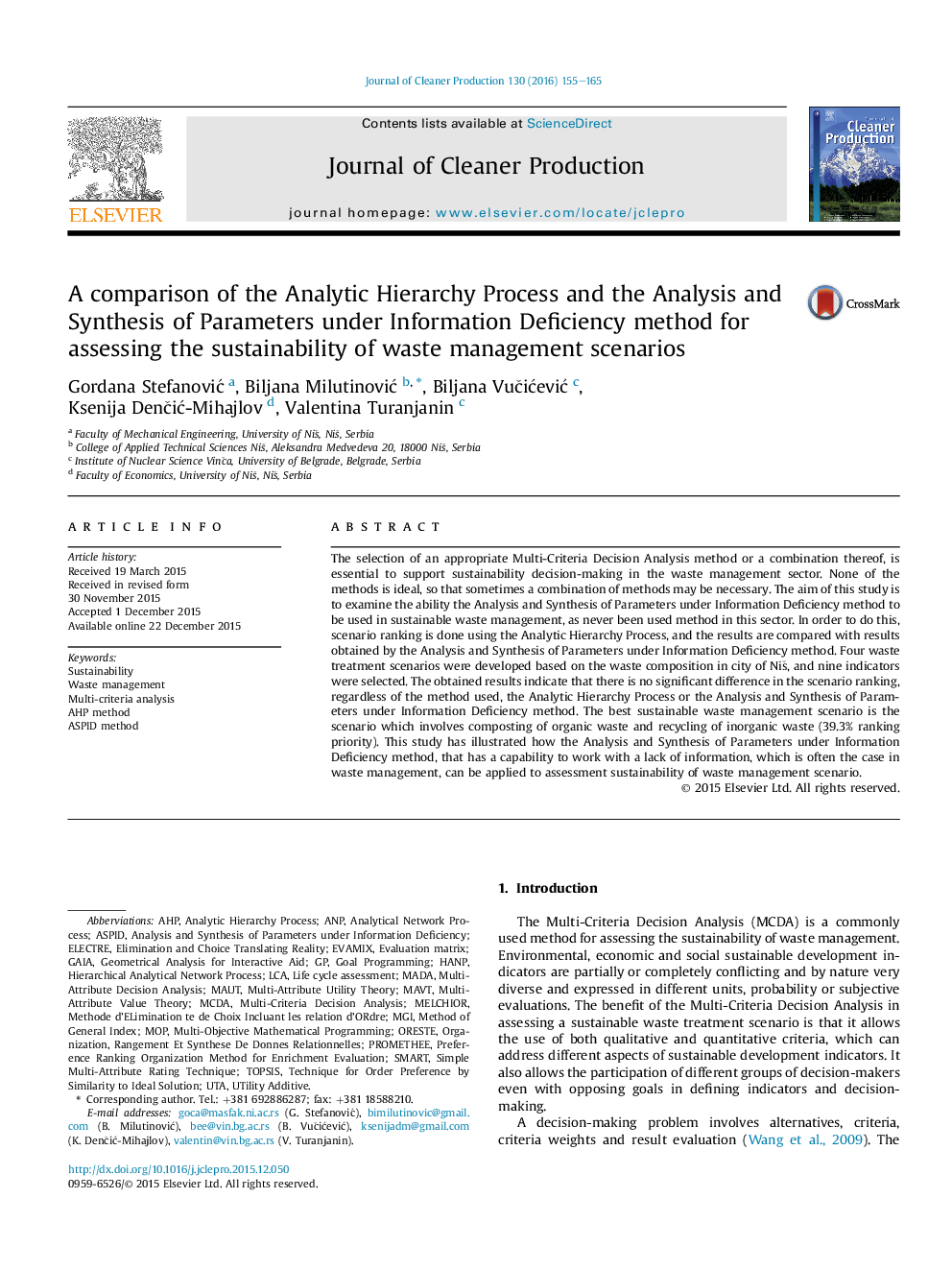| Article ID | Journal | Published Year | Pages | File Type |
|---|---|---|---|---|
| 1744046 | Journal of Cleaner Production | 2016 | 11 Pages |
•Alternative method for assessing sustainability of waste scenarios is presented.•This study compares two methods for assessing sustainability of waste scenarios.•The best sustainable scenario is recycling inorganic and composting organic waste.•The presented methodology has a potential for decision makers, and researchers.
The selection of an appropriate Multi-Criteria Decision Analysis method or a combination thereof, is essential to support sustainability decision-making in the waste management sector. None of the methods is ideal, so that sometimes a combination of methods may be necessary. The aim of this study is to examine the ability the Analysis and Synthesis of Parameters under Information Deficiency method to be used in sustainable waste management, as never been used method in this sector. In order to do this, scenario ranking is done using the Analytic Hierarchy Process, and the results are compared with results obtained by the Analysis and Synthesis of Parameters under Information Deficiency method. Four waste treatment scenarios were developed based on the waste composition in city of Niš, and nine indicators were selected. The obtained results indicate that there is no significant difference in the scenario ranking, regardless of the method used, the Analytic Hierarchy Process or the Analysis and Synthesis of Parameters under Information Deficiency method. The best sustainable waste management scenario is the scenario which involves composting of organic waste and recycling of inorganic waste (39.3% ranking priority). This study has illustrated how the Analysis and Synthesis of Parameters under Information Deficiency method, that has a capability to work with a lack of information, which is often the case in waste management, can be applied to assessment sustainability of waste management scenario.
